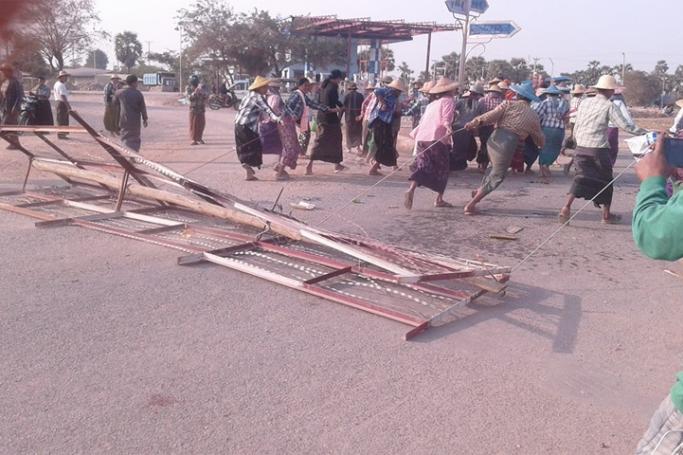The Chinese firm behind a controversial Myanmar copper mine on Thursday said it plans to start operations in May, a move expected to pose an early challenge to a new government led by Aung San Suu Kyi.
Angry farmers and activists have repeatedly clashed with authorities in recent years over the Letpadaung copper mine in the central town of Monywa.
Several bloody police crackdowns on protests have stirred anti-China sentiment and public alarm over the project, which is a joint venture with the corporate arm of Myanmar's military.
After years of construction the mine will swing into operation just weeks after Suu Kyi's new government is formed, threatening to thrust the sensitive issue of Myanmar's relationship with its giant neighbour and key trading partner China to the fore.
"We can start production in May," said Dong Yun Fei, Myanmar spokesman of the Chinese firm Wanbao.
"We will start to run our production under the new government and I hope for a better future with them," he said, adding that there are "still some problems with local people".
"Some of them protest sometimes. The question of how to handle this problem is the business of the government. Only they can solve it," he told AFP.
Suu Kyi is carrying the hopes of a nation following a huge election landslide won by her National League for Democracy (NLD) in historic November elections.
The party will form a government in April, finalising a prolonged and delicate political transition in a country ruled for decades by a repressive junta that was shunned by Western nations but courted by Beijing.
Myanmar has seen major reforms under the outgoing quasi-civilian regime, which replaced outright military rule in 2011, throwing open the doors to international investment in the long-cloistered country.
Outgoing president Thein Sein suspended a multi-billion dollar Chinese-backed dam soon after coming into power, signalling a realignment in the country's relationship with Beijing, which had for years sheltered the junta from the full force of Western opprobrium.
But other major infrastructure projects have continued, including the Letpadaung mine and a huge oil and gas pipeline that traverses Myanmar from its southwestern coast to its northern border with China.
Letpadaung has been dogged with controversy since 2012 when police tried to clear a protest camp using phosphorous canisters, causing outrage after it left dozens of people with severe burn wounds, including several monks.
Suu Kyi led an official probe into that incident, which attracted the ire of activists after it recommended construction be allowed to continue.
Wanbao has defended the project and denied any wrongdoing, saying last year that Myanmar stands to receive $140 million a year in tax from the project.
But protests have continued and crackdowns -- including the shooting death of a demonstrator in December 2014 -- have also spurred bouts of anti-China demonstrations in Yangon and other major cities that led to activists being imprisoned.
© AFP
Chinese firm aims to start production at flashpoint Myanmar mine
19 February 2016
Chinese firm aims to start production at flashpoint Myanmar mine












